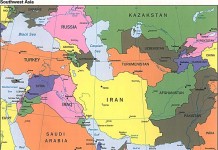Context
The passing away of Special Representative Richard Holbrooke would be strongly felt in Pakistan and US. The government’s attempt to introduce IMF mandated Reformed General Sales Taxes (RGST) has run into major opposition. In the post flood environment, the Pakistan People’s Party (PPP) led coalition government was already under considerable stress and now one of its coalition partners Jamiat Ulema-e-Islam (JUI-F), decided to part ways. This article looks at the developing political scenario in Pakistan.
.jpg)
Analysis
A variety of factors are piling the pressure on the PPP led government and foremost among these are the accusations related to corruption. Negative reputations are hard to reverse and PPP government has had a rough ride from the beginning, to improve the image of its party chief and president of the country. This perception has plagued almost every initiative the government has been involved in, be it dealing with Kerry-Lugar aid package, IMF support, or in handling flood relief and rehabilitation. Moreover, the PPP leadership has not made any serious effort to deal with the credibility issue. The party has instead adopted a confrontational approach, and in this its conduct is no different from past governments under similar circumstances.
Governor of Punjab Salman Taseer, Interior Minister for Sind province Zulfiqar Mirza, and Federal Minister for Law, Justice and Parliamentary Affairs Babar Awan, perform most of the party brinkmanship. These individuals consistently serve to alienate Pakistan Muslim League-N in Punjab and Muttahida Qaumi Movement (MQM) in Sind. On the other hand, Federal Minister for Interior Rehman Malik operates as an emissary for the President and the Prime Minister, and to play the conciliators role. To maintain the coalition, PPP needs to play each party against the other, and this it would seem, is politics at its best.
The dynamics of the above theatrics are directly linked to the vulnerabilities of the present political set up and political parties. In recent years, economic stresses, extremism, foreign influences, and military interventions, are causing the leading political parties of Pakistan to loose their national character, and become more local. Pakistan is a country deeply divided along ethnic, economic and social lines, and, as a consequence, a coalition of political parties is often required in forming a government. These alliances become outdated quickly as they fail to keep pace with rapid change in the local and international environment, and spend most of their efforts shift to survival.
However, when parties begin to embrace the use of race and ethnicity as a tactic, it represents an unusually perilous political strategy. Such methods are typically employed when politicians feel desperate and to demonstrate their power base. The message is particularly intended for the Army, whose support is considered essential in bringing about political change in Pakistan. If political parties use ethnic divides to maintain a hold on power, the military has traditionally used religion to counterbalance the divisiveness and partisanship.
JUI-F is the second party since Muslim League-N earlier quit the coalition at the federal level. Now MQM has threatened to leave the PPP coalition if remedial actions are not taken soon. The parting of JUI-F, and keeping the numbers game aside, has significantly weakened the PPP government and its ability to govern and execute policies. This is occurring at a time when the party needed to muster its strength in order to get Reformed General Sales Tax to pass the National Assembly.
Furthermore, in the complete absence of representation from religious parties, PPP government would face additional credibility challenges and in implementing its policies related to the war on terror. These outcomes are also likely to impact Pakistan relations with its traditional ally, Saudi Arabia.
Facing these circumstances, and as alluded to above, the focus of the government would dramatically shift from governance to survival. Examining the role of previous rulers facing similar dire circumstances reveals that as oppose to course correction, they usually took more missteps and suicidal actions. These leaders failed to make a distinction between national and self-interest, and to check their negative cultural and emotional tendencies.
.jpg)
Keeping the situation in Afghanistan, FATA, India, and Iran in view, and the divisive politics of the present government in mind, the timing appears ripe for a coalition of religious parties to emerge once again. The US would dearly miss a diplomat of Holbrooke’s stature to make sense of the volatile Pakistani politics and to temper it, at this sensitive stage of the Afghan conflict. Especially, when US seem to have concluded that without Pakistan’s support, Afghan situation cannot improve.
Tell Us What You Think
Feedback@politact.com



